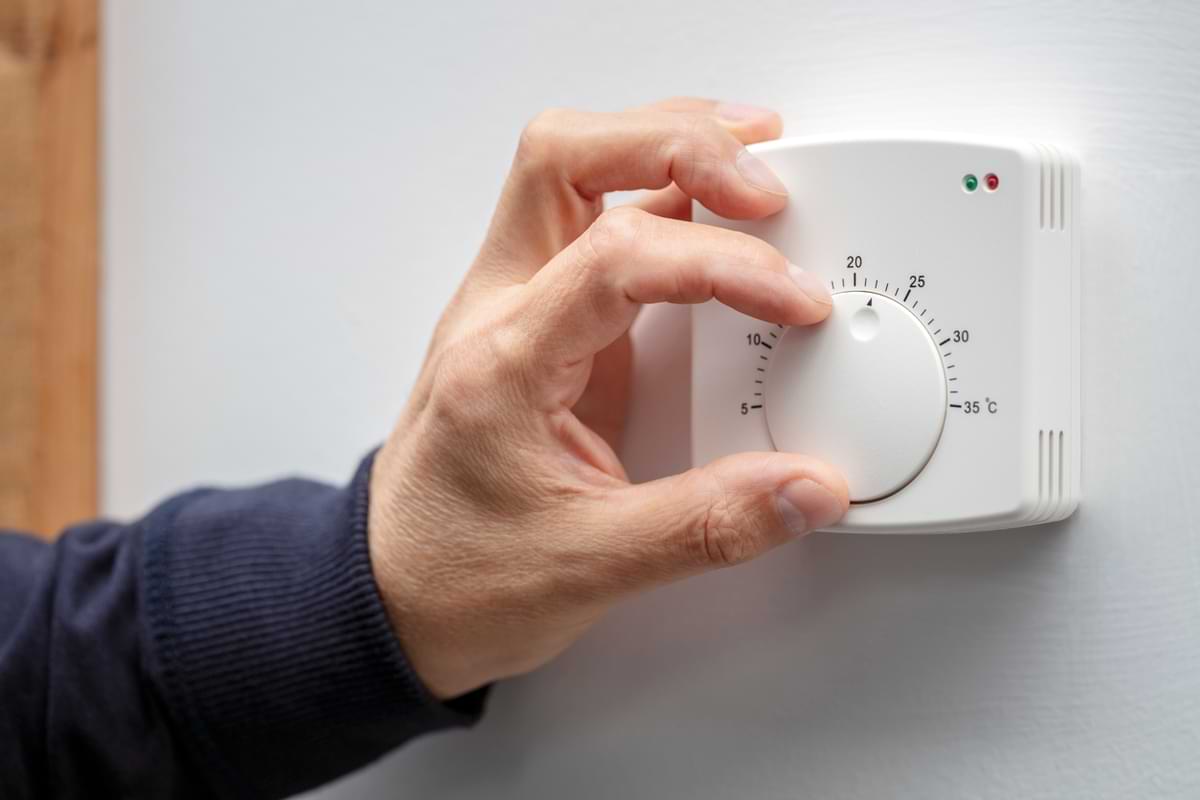

 Turning an emotional dial
By BrianAJackson/ iStock.com
Turning an emotional dial
By BrianAJackson/ iStock.com
Babies usually have two modes: Screaming or happy. There’s no in-between. They haven’t developed the ability to regulate their emotions yet. Sometimes, adults haven’t adequately developed to nuance their feelings either. Think of a peaceful, mellow person who responds to stubbing their tow by throwing a massive adult fit. Maybe your parents blew up with fury when you missed a spot sweeping. These all indicate a “switch mentality.”
Our reactions to life can be made in switches or dials. Do we dial our emotions to fit the situation or switch from “fine” to “blisteringly mad” no matter how small the situation? If you are all-in with a friendship until that person disappoints you, and then you are all out, you engage with a switch, not a dial. A switch is either off or on. A dial can be turned up or down incrementally.
If a family member hurts me, I can draw a slightly tighter boundary around the relationship or cut that person off and stop speaking to them. Dial. Switch. Dials are generally healthier.
In “What are personality disorders?” I outlined some of the defining characteristics of personality disorders. A deeply engrained switch mentality is often indicative of a personality disorder.
When I hire a new employee, confident they’re the perfect person for the job, I can get behind them and be excited about them. The switch is wholly in the “on” position–I’m 100 percent excited. What happens when it turns out they aren’t the perfect person for the job (because there’s no such thing)? A person with a dial mentality can continue to support them with, say, 70 percent positivity. People with a switch mentality can’t handle the disappointment. The employee is immediately on thin ice for layoffs.
Apply that kind of unhealthiness to friendships and marriage, and disaster awaits. I once read that we all marry an ideal person but become married to a real person. Ultimately, we must divorce the ideal and stay married to the real, or we divorce the real and keep searching for the ideal.
Genuine relationships require a dial mentality.
In the same vein, maybe you are the “worst-case scenario” type. In this case, you jump to the extremely unlikely but possible conclusions. For example, say you try to call your daughter while she’s at college, but she doesn’t pick up. Does your brain immediately panic? “What if she’s been in a wreck? Maybe she’s been kidnapped!” There are countless more likely reasons: Her phone is dead, she doesn’t want to talk right then, she’s in class, etc. Of course, it’s technically possible she’s been in a wreck, but the emotional reaction doesn’t match with rational likelihood. It is okay to deal with the realities rather than borrow troubles that are essentially guaranteed not to exist.
One of my doctor friends reminds his patients, “It’s probably horses.” Let me explain. He points out that if we hear hoofbeats outside, it could be zebras (they have hooves), but probably, it’s horses. When someone has a symptom that could be an allergy headache or a brain tumor, it is most likely an allergy headache. Could it be zebras (brain tumors)? Well, technically, yes, but it’s pretty darned unlikely. This story helps his patients dial back their emotions.
When it comes to worry, you should keep the gauge dialed down as low as the common denominators allow. I encourage everyone to develop the skill of measured emotional responses. In the past, this character trait was called “temperance.”
Temperance means to be the governor of your emotions rather than governed by them. We have the capacity to affect the intensity of our emotions with our minds and hearts. Learning to understand our feelings maturely is critical to a happy life. Then, we know how to talk to ourselves in emotionally rational terms.
Temperance allows us to use the dial mentality rather than the switch mentality. Rather than feeling
we can instead feel,
So, do your best to develop the patterns and skills of engaging with dials. Avoid “switch” thinking. Feel a little more or a little less – not everything or nothing. Let your relationships grow a little or fade a little, pull back a little, step up some more. There are no perfect relationships with humans. Don’t demand them to be perfect. Get better and better at cranking the volume dial up or down a few notches. There are better things than off or on all the way.
Everyone can fall into overreacting (or even underreacting sometimes). This can indicate a personality disorder in severe cases, but it doesn’t have to. All of us can struggle to regulate our emotions. We can all fall into the switch mentality. But our lives and relationships will improve if we apply the dial mentality.
Next time you stub your toe, your friend cancels on you, or your spouse doesn’t do the dishes, ask if you dial your reactions correctly.
If your inability to dial your emotions properly disrupts your life, relationships, or work, come into counseling. If a close loved one struggles with emotional regulation, consider gently, lovingly discussing it. If the switch mentality is getting in the way of your marriage, come to couples counseling. We have trained, professional counselors all across Texas ready to help!